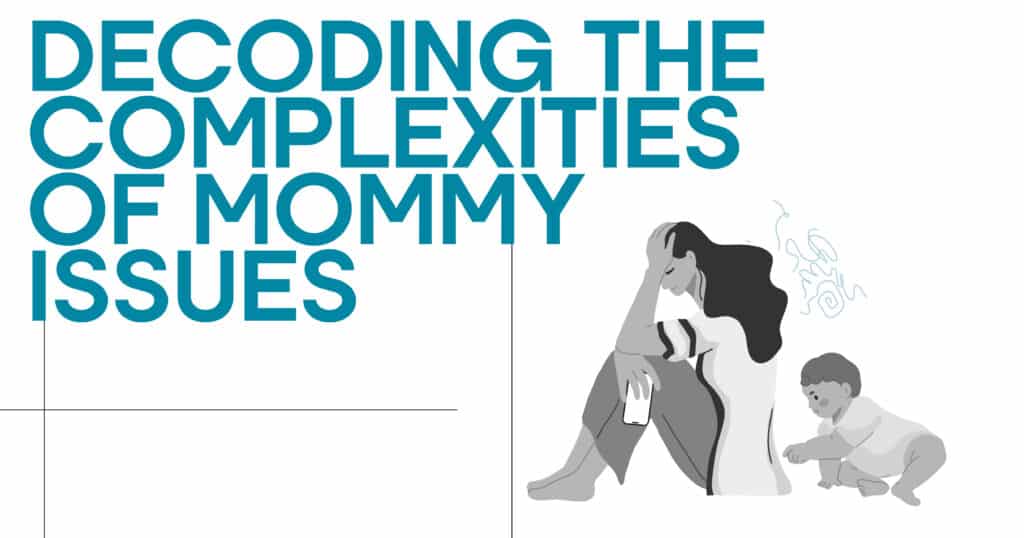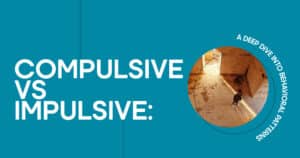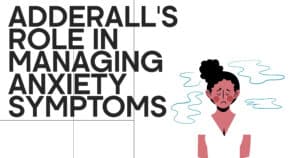The term “mommy issues” is usually dismissed as a joke. Most people think the term means someone who didn’t get enough affection. Others refer to people overly spoiled by their mom. In reality, mommy issues are much deeper. They are emotional challenges stemming from a complicated relationship with your mother during childhood.
Since a mother plays such a crucial role in the early years, these issues can have long-lasting effects, shaping how we see ourselves, trust others, and build relationships throughout our lives.
In this article, we’ll break this parental attachment style down step by step. We’ll discuss what mommy issues really mean, the underlying causes, how they affect relationships, and most importantly, how people can begin to heal from them.
Identifying Signs of Mommy Issues
Not every rocky childhood means you’ll grow up carrying emotional baggage. However, problems can get left unresolved. When this happens, they find sneaky ways to show up later. A lot of people who deal with mommy issues become emotionally dependent on others. They might need someone else’s approval to feel good. Also, they’re constantly looking for comfort, even if they’re not sure why.
Here are a few signs an individual has unresolved issues with their mom:
- Feeling anxious or unsure in close relationships.
- Wanting constant validation, even in small things.
- Being afraid to get too close, or getting too attached too fast.
- Struggling to trust people or let your guard down.
- Ending up in toxic relationships that feel weirdly familiar.
And sure, some of this overlaps with other childhood issues, too, like insecure attachment or trauma from other caregivers, but the root for a lot of people really does come back to mom.

Common Causes and Origins of Mommy Issues
Mommy and daddy issues are more common than you think. Usually, it starts when we’re little, before we even have words for what’s going on.
| Cause | What It Feels Like | What Happens Later |
| Emotional Neglect | Feeling like your emotions weren’t noticed. | Needing other people’s approval. You feel unsure of your own worth. |
| Insecure Attachment | Your mom was hot and cold, sometimes there, sometimes not. | You grow up anxious in relationships and scared to trust. |
| Abandonment | Maybe your mom physically left, or felt emotionally checked out. | You crave closeness but also fear people will leave you. |
| Control/Overprotection | Your mom made all the decisions, didn’t let you grow. | You doubt yourself, have trouble being independent. |
| Trauma at Home | Yelling, silence, or emotional chaos growing up. | It wires your brain to stay on high alert and makes you afraid of deep connections. |
Once you start unpacking the “why,” the behavior starts to make more sense. It’s not about blaming, it’s about understanding.
The Role of Childhood Trauma
Trauma from childhood, if not addressed, finds a way to show up in adulthood. It can hide behind perfectionism. For others, people-pleasing.
Living in a home where things are unpredictable can be a trigger. One day, your mom’s affectionate, and the next she’s cold. This wires you to always stay ready for disappointment.
Children in these kinds of environments often grow up struggling to trust others or even themselves. Research from the National Library of Medicine (NLM) shows that maternal neglect or inconsistency can leave you with attachment wounds that linger long past childhood. So if it feels hard to connect or regulate your emotions, you’re not broken. You’re just carrying a weight that wasn’t yours to carry in the first place.
Impact of Mommy Issues on Adult Relationships
Mommy issues can be difficult to get rid of. It can show up in your friendships and your dating life. Sometimes it even affects how you handle stress or conflict.
What It Might Look Like Now
- Getting nervous if someone pulls away emotionally.
- Constantly needing to hear you’re loved or appreciated.
- Leaving relationships before the other person can leave you.
- Saying “yes” when you really want to say “no,” just to keep the peace.
- Feeling like you’re not enough, no matter how much love you’re given.
They’re coping skills that maybe once protected you. But now? They might be keeping you stuck.
Emotional Neglect and Attachment Issues
Attachment issues can also form if you’re a victim of emotional neglect. When you’re a child and no one helps you make sense of your feelings, you grow up not knowing how to handle them. You don’t get a clear picture of who you are or how your emotions work.
A lot of children in these situations grow into adults who crave closeness but don’t feel safe when they get it. They second-guess every connection. They overthink texts, freak out over silence, or constantly worry someone’s going to walk away.
That’s what insecure attachment feels like. And it’s not your fault if you learned those habits young. What matters is what you do now.
Strategies for Healing Mommy Issues
You don’t have to carry this around forever. Yes, it takes work, but healing is real.
| Try This | Why It Helps |
| Talk to a therapist | They can help you untangle where the patterns started |
| Set some boundaries | Saying no builds self-trust and teaches others how to treat you. |
| Reflect on the past | Writing, thinking, or talking through your history helps make sense of it. |
| Find safe people | Surrounding yourself with people who get it can be healing in itself. |
There’s no deadline on healing. Go at your own pace.
Therapy for Emotional Dependency
Constantly chasing approval is draining. You might not even realize how dependent you are until someone pulls away. That’s what emotional dependency often feels like. And if you grew up without steady emotional support from your mom, this makes total sense.
A lot of people who deal with mommy issues develop this kind of dependency without meaning to. They try to fill the gap that was left behind. They start overgiving or over-worrying. Occasionally, they stay in one-sided relationships just because it feels familiar.
That’s where therapy can really help. It’s not just about “talking it out”, it’s about:
- Going back to the root of where these patterns started.
- Learning how to meet your own emotional needs without guilt.
- Getting tools to build real confidence, not the fake kind you put on to survive.
Whether it’s one-on-one therapy, group support, or trauma-informed care, the goal is to stop living with old pain and start building a more secure version of you.
Start Healing With CA Mental Health
If all of this is hitting a little close to home, you don’t have to fix it all alone. Working through childhood trauma, especially with your mom, can feel heavy. It can bring up emotions you didn’t expect. But that’s okay. Healing is not about doing it perfectly; it’s about finally doing it for you.
At CA Mental Health, you’ll find people who actually get it. Not just therapists who’ve read about these situations. We’ve helped others move past this trauma. Whether you’re tired of feeling stuck in the same cycles or finally ready to talk about things you’ve buried, this is a safe place to start.
You’re allowed to want better. You’re allowed to ask for help. And you deserve support that sees all of you, not just the parts you’ve learned to hide.

FAQs
What are the signs of emotional neglect in a maternal relationship that might lead to mommy issues?
Feeling like your emotions didn’t matter. If you had to suppress how you felt just to keep the peace. Over time, this can lead to self-doubt and anxiety. Or emotional shutdown.
How can childhood trauma contribute to insecure attachment and emotional dependency on maternal figures?
When emotional safety is missing, children grow up unsure of who they can count on. It creates a need to constantly seek closeness, even when it hurts.
What is the impact of mommy issues on forming healthy adult relationships?
People often struggle with trust, boundaries, and self-worth. It can also lead to patterns of overgiving and people-pleasing. Most individuals push people away before they can leave first.
How does an insecure attachment to a maternal figure affect emotional well-being?
It’s like part of you craves closeness, but another part keeps pulling back. That tug-of-war wears you down, makes you second-guess yourself, feel uneasy, and, honestly, just plain tired in your relationships.
What therapeutic approaches can help address abandonment issues related to mommy issues?
Therapies like inner child work and trauma-informed counseling work. They help rebuild trust in yourself and others. They also teach you how to set healthy limits.




